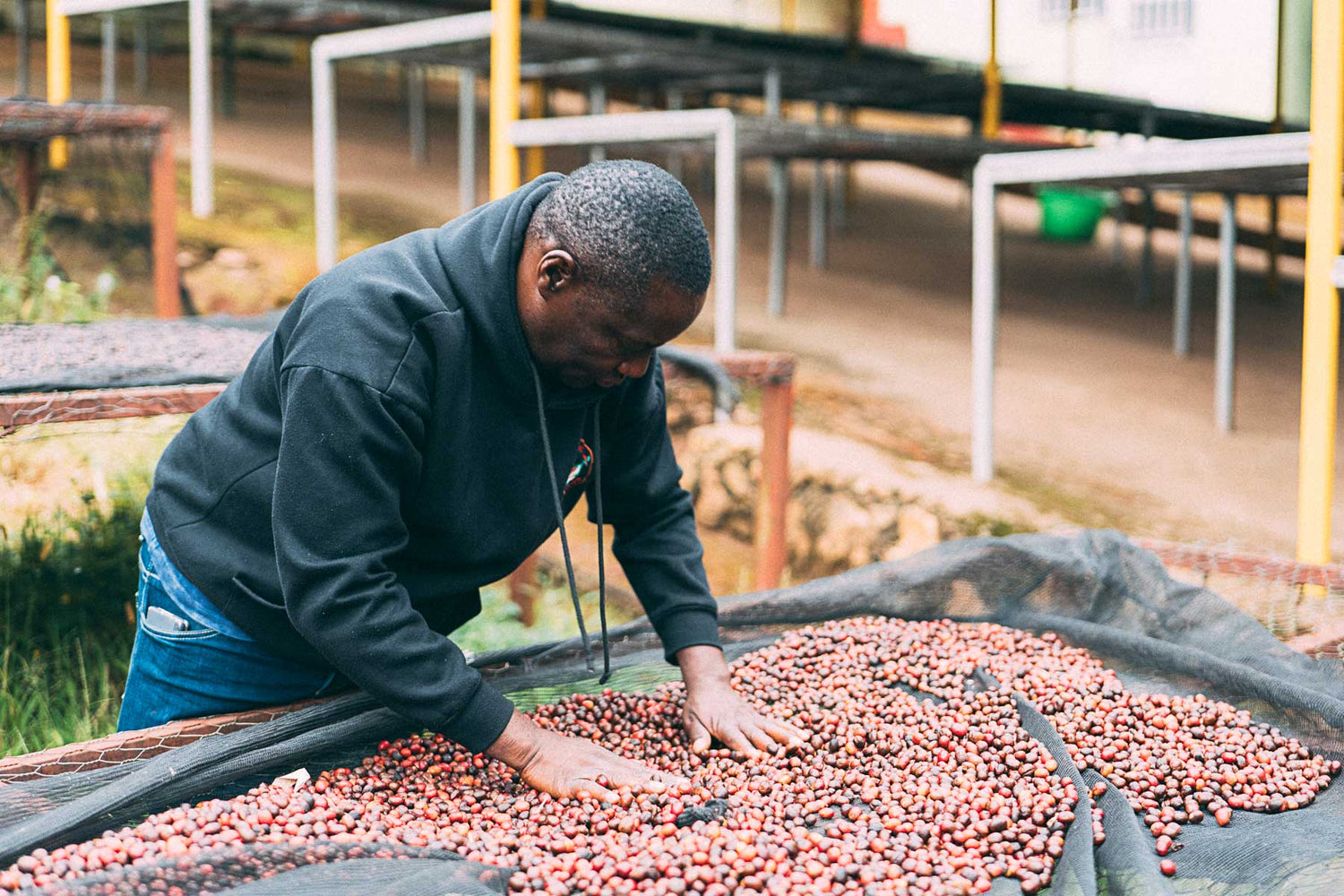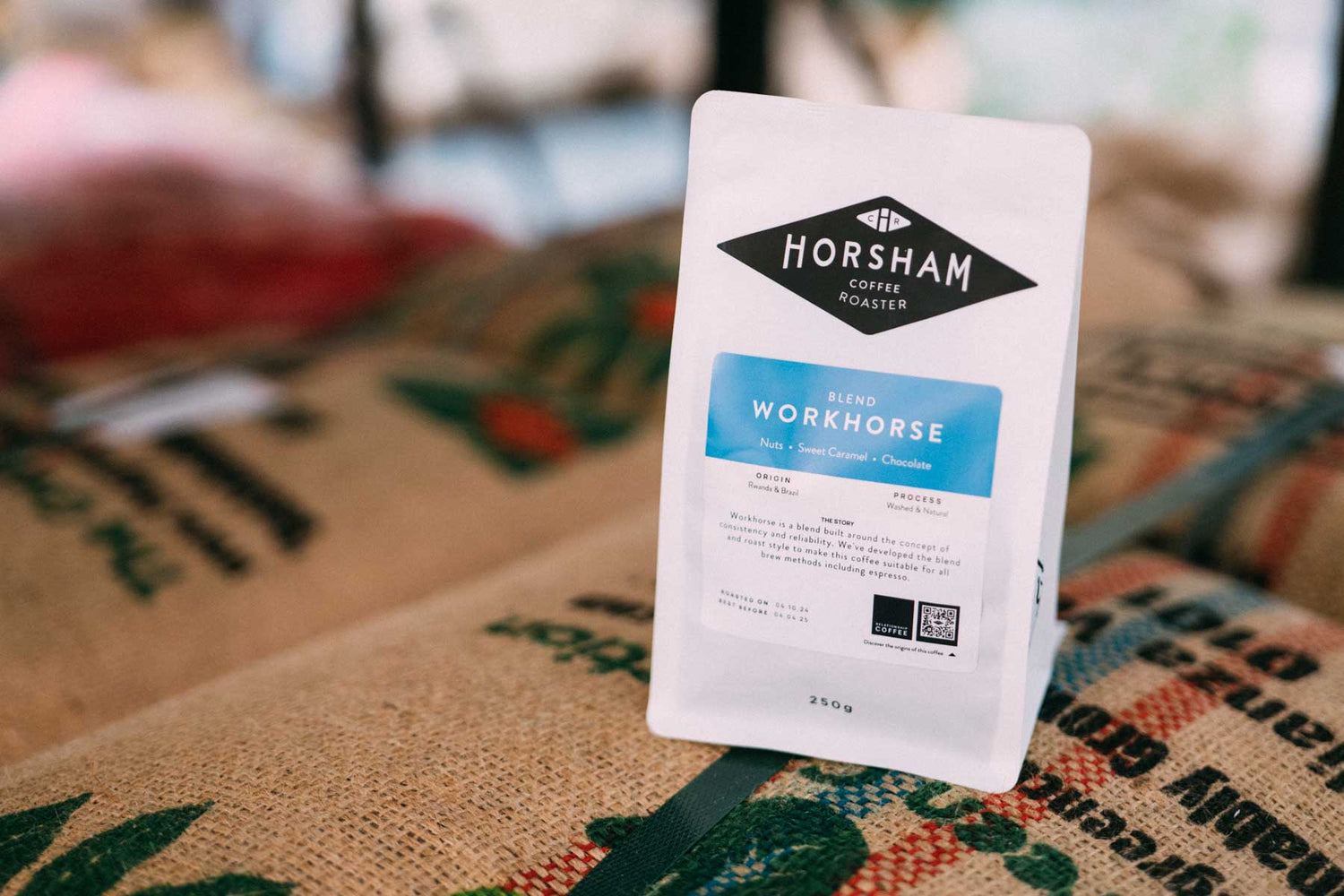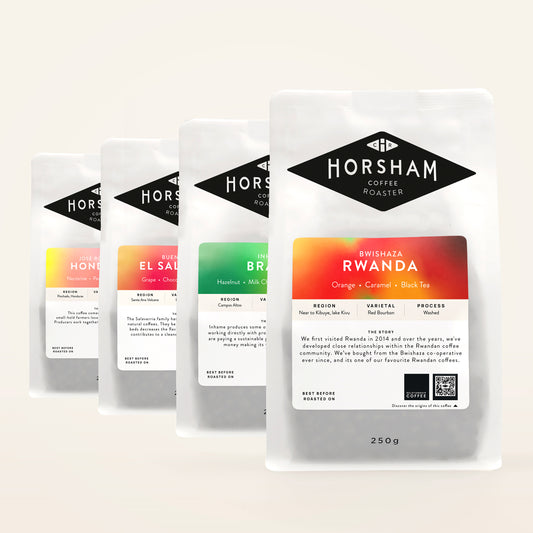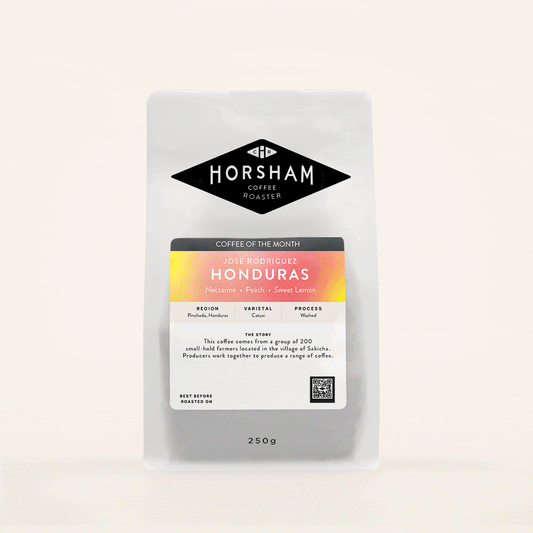If you’ve browsed any specialty coffee menu recently, chances are you’ve seen the term single origin coffee proudly displayed. But what exactly does it mean – and is it really better than a blend?
At Horsham Coffee Roaster, we offer both single origin coffees and carefully constructed blends. In this guide, we’ll break down the meaning behind the label, why single origin matters, and when a blend might actually be the better choice for you.
What Is Single Origin Coffee?
Put simply, single origin coffee comes from one specific place — often a single farm, co-operative, or processing station within a defined geographic region.
This might mean:
• A single farm in Colombia
• A community of smallholders from Tabaconas in Peru
• A co-operative washing station in Kimbuye, Rwanda
Because of this focused sourcing, single origin coffees often reflect the unique flavour profile of their region, known as terroir — influenced by climate, altitude, soil, and processing method.

Why Choose Single Origin?
1. Traceability & Transparency
With single origin, you know exactly where your coffee comes from. At Horsham Coffee Roaster, many of our single origins are relationship coffees – sourced directly from producers we know and work with year after year.
2. Distinctive Flavour
Each region brings its own characteristics. Expect:
• Juicy, berry-like acidity from Kenyan coffees
• Well balanced notes with gentle acidity from washed Costa Ricans
• Chocolate, hazelnut and caramel in Brazilian naturals
3. Seasonality
Single origins are harvested at peak freshness, which means the coffee you’re drinking is in season and at its best.
4. Support for Producers
Direct trade and relationship coffees often mean better prices for farmers, encouraging sustainable practices and quality improvements.

But What About Blends?
Blends have their place — and in specialty coffee, they can be just as traceable and high quality as single origin offerings.
At Horsham Coffee Roaster, our Nova Espresso, Workhorse and El Zumo Blends are made from individually sourced components, selected for their balance, sweetness, and performance in espresso.
The key difference is:
• Commodity blends (like those in many supermarkets) = low traceability, price-driven, often a mix of unknown origins
• Specialty blends (like ours) = fully traceable, ethically sourced components, roasted to highlight balance and consistency
Blends are ideal for milk-based drinks, café service, or anyone who prefers a consistent, smooth, lower-acidity cup.
Common Questions About Single Origin Coffee
Is single origin coffee always better?
Not necessarily — it depends on what you enjoy. Single origins can be more complex and adventurous, while blends can be smoother and more consistent.
Is all single origin coffee traceable?
Is single origin coffee good for espresso?
Absolutely! We roast our single origin coffees to perform beautifully across brew methods – including espresso.
Why does single origin coffee cost more?
Better quality beans, sustainable sourcing, and small-scale farming practices often mean a higher price – but also better flavour and fairer pay for producers.
So Does Single Origin Matter?
If you care about flavour, ethics, and transparency – yes, single origin matters.
But it’s not a competition. A great blend can be just as exciting as a single origin, especially when every component is chosen with the same care and traceability. At Horsham Coffee Roaster, we’re proud to offer both – so you can explore, compare and enjoy many different types of coffee.
Discover Delicious Single Origin Coffee
-
Horsham Coffee Roaster
Coffee of the Month Subscription
Regular price From £10.25Regular priceUnit price per -
 10% OFFHorsham Coffee Roaster
10% OFFHorsham Coffee RoasterSingle Origin Coffee Selection
Regular price £43.20Regular priceUnit price per£48.00Sale price £43.20Sale -
 NEWBlackcurrant | Rhubarb | Brown Sugar
NEWBlackcurrant | Rhubarb | Brown SugarKianderi AB Kenya | Washed
Regular price From £13.50Regular priceUnit price per -
 15% OFF NEWParma violets | Rose hip | Molasses
15% OFF NEWParma violets | Rose hip | MolassesJairo Arcila Java Colombia | Anaerobic fermentation natural
Regular price From £16.58Regular priceUnit price per£19.50Sale price From £16.58Sale NEW




